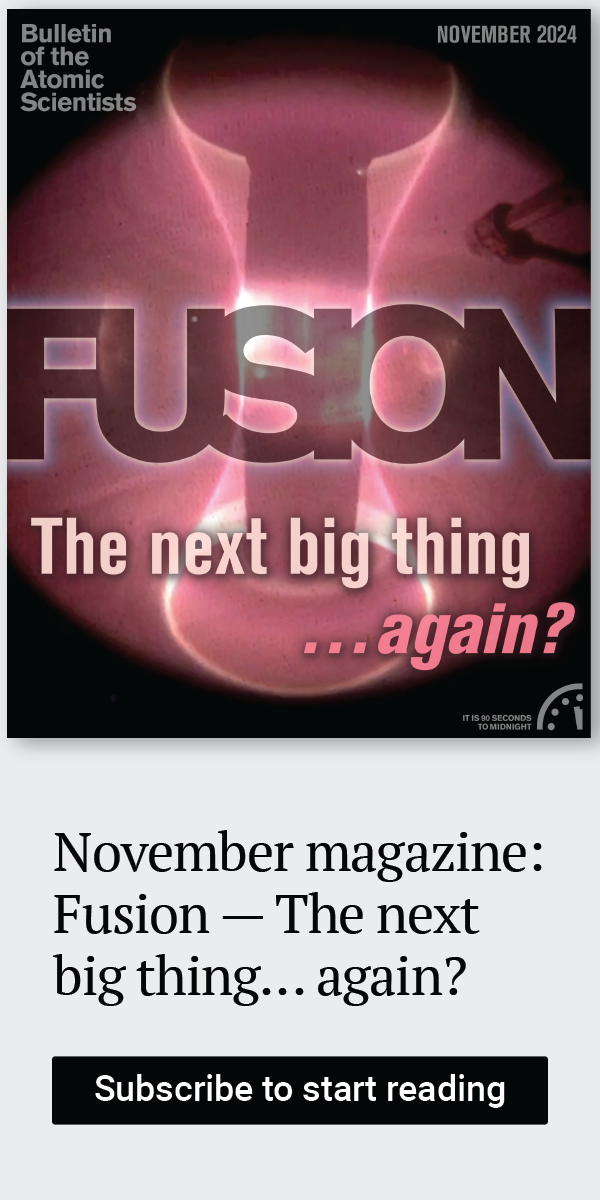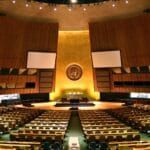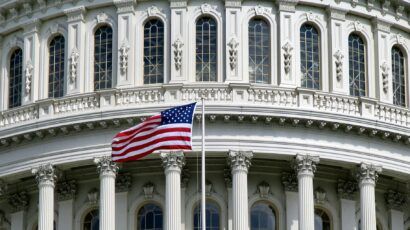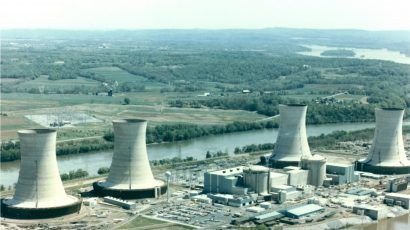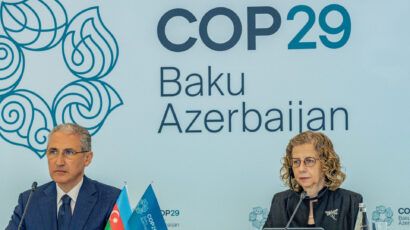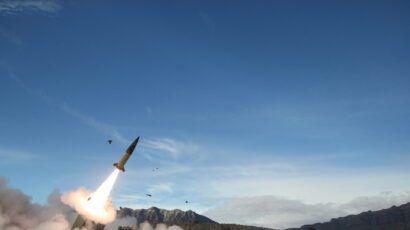The trouble with Trump’s North Korea policy
By John Nilsson-Wright | September 6, 2017
Amid the growing anxiety generated by North Korea’s recent missile tests and its dramatic sixth nuclear test, the Trump administration is grappling with the challenge of finding a proportionate response. Somehow, it needs to simultaneously punish the North for its continuing provocations, slow down and ultimately reverse Kim Jong-un’s WMD modernization program, and ensure that the current tension does not escalate to a military conflict—a conflict that would almost certainly have devastating consequences for Koreans on both sides of the demilitarized zone, for the residents of Japan, and for the US forces stationed in the region.
Consequently, US ties with Japan and South Korea must remain strong—which means that Trump will have to demonstrate his trustworthiness and reliability, end the damaging internal divisions and off-message confusion in Washington, and stop attacking his allies. If he does not undertake these measures, then there will be no long-term coordinated alliance strategy—and without a long-term coordinated strategy there will be little hope of finding a solution to the North Korean crisis. Instead, we risk becoming trapped in an endless cycle, in which the diplomatic and strategic initiative is ceded to the provocations of Kim Jong-un.
Perhaps the most important of these measures is maintaining the confidence of America’s two key Asian allies—Japan and South Korea—given the critical importance they play in offsetting the threat from North Korea. But Trump’s behavior—such as attacking Washington’s South Korean ally in his tweets, contradicting his own Defense Secretary, and saying that “Talking is not the answer”—appears to be having the exact opposite effect, which publications such as The New Yorker summarized as “mak[ing] an extremely dangerous and volatile situation worse,” and prompting CNN to publish a story titled “North Korea crisis needs a grown-up, Mr. Trump.” These are extraordinary items for mainstream publications to print during a crisis under a sitting president. (Try to imagine a similar headline during the Cuban Missile Crisis.)
And in addition to their effects on a US audience, Trump’s statements have also prompted nervousness among the publics of both Japan and South Korea, and caused government officials in those countries to question the reliability of the US security guarantee to the region; America’s allies see clear risks in relying on a US President who appears impulsive, erratic, and overly wedded to a policy of military brinkmanship.
Historically, the strength of the US security alliances with both South Korea and Japan has been based on a combination of mutual trust, close coordination between policymakers, and the US’ conventional and nuclear forces that have provided a protective umbrella of extended deterrence to governments in Tokyo and Seoul. For now, extended deterrence appears secure given the boots on the ground of a substantial number of US forces in the region: 39,000 US troops in Japan and 23,500 in South Korea (along with substantial numbers of US dependents in both countries). But the necessary trust and coordination needed to make these alliances work is becoming frayed to the point where alliance effectiveness could be jeopardized, and regional security undermined rather than strengthened.
In Seoul, the recently elected government of President Moon Jae-in has had to contemplate the astonishing prospect of the Trump administration unilaterally reneging on the Korea-US Free Trade Agreement. At a time of maximum danger for Seoul, Washington has threatened to undercut a progressive South Korean president, much of whose popularity comes from the support of Korean workers and young voters—who have traditionally been highly critical of US political high-handedness and for whom “unfair” US trade practices have frequently been a lightening-rod for street protests against American unilateralism.
To add insult to injury, Trump has chosen the latest crisis to lecture the Moon administration for seeking to promote dialogue with the North—a policy that the US president has provocatively labeled as “appeasement.” Since coming to power in May, President Moon had worked carefully to develop a twin-track approach with the United States where Washington focused on dealing with the security threat from the North, while Seoul sought to develop a new engagement strategy towards Pyongyang. In a number of characteristically intemperate and ill-timed tweets, Trump appears to have needlessly blown this carefully crafted approach out of the water.
To be sure, there are aspects of the security partnership that are working well. Seoul and Washington are currently exploring the possibility of US F-22 and F-35 stealth fighter jets being rotated on a quarterly basis to South Korea, and the United States is willing to relax important guidelines that have restricted the range and payload weight of South Korean missiles that could be used to target the North—two steps that would enhance South Korea’s defense capabilities.
Yet, there are limits to what can be achieved. The South Korean public is typically phlegmatic in the face of North Korean provocations, but this confidence is being undermined by worries about the temperament and unpredictability of the US president. In this feverish environment, it is unsurprising that South Korea’s opposition parties, particularly the conservative Liberty Korea Party, have criticized the Moon administration and argued that US tactical nuclear weapons should be reintroduced to the South. Moon, therefore, risks being squeezed by both the political left and the right—faulted by progressives for not opposing US trade protectionism on the one hand, and berated by conservatives on the other for “naively” hoping to talk to the North.
In Japan, anti-Americanism is much less prevalent than in South Korea, although there is a long history of anti-base sentiment in Okinawa. The Abe government has been keen to secure assurances from the United States on the reliability of extended deterrence, as well as a guarantee that the United States will not attack North Korea without first consulting with Japan. It is this that explains, in part, US Defense Secretary Mattis’ very public September 3 “ironclad” commitment to the US defense of its regional allies. Yet, while Mattis and National Security Advisor Gen. H.R. McMaster are seen in Tokyo as dependable “globalists,” there is much less confidence in the president.
Prime Minister Abe has been assiduous in courting Trump since Trump’s election as president, but seasoned officials in Tokyo appear worried about the limits to the new special relationship between Abe and Trump. Concern over the North’s repeat provocations explains Abe’s push for tougher economic pressure against Pyongyang, but anxiety over the risk that an impulsive response from President Trump might escalate the crisis may explain the surprise decision by Finance Minister Taro Aso to cancel a September 4-6 visit to Washington for trade talks with Vice President Pence.
There is some speculation that Aso has been instructed to remain in Tokyo to minimize the risk that Japan’s economic priorities will be held hostage to its security concerns. As a president who sees the world from the extremely narrow viewpoint of a New York City real estate mogul—where buying and selling is all, business leaders ensure compliance from subordinates through reward and punishment, and personal gain comes before public good—Trump is seen by some in Japan as too eager to exploit the Korean crisis for his own narrow trade and political interests. In this evaluation, they are not alone. The New York Times recently noted that Trump’s fury at South Korea appears in part to be connected to his anger over his so-far-unsuccessful attempt to rewrite trade deals with that country. (In fact, if Japan’s leaders are adept at separating politics from economics—a mindset known as seikei bunri—then Trump appears constitutionally incapable of approaching foreign policy from anything other than a transactional perspective.)
Tokyo and Seoul have, therefore, good reason to worry about US reliability and may have little choice but to seek to strengthen their own bilateral cooperation, independent of the United States. An opportunity for this may come on September 6, when Abe and Moon are both scheduled to meet in Vladivostok for the annual Eastern Economic Forum Conference. There are also reports that the Japanese and Korean defense ministries will establish a bilateral hotline before the end of the year. Welcome as these developments are, they should not be at the expense of trilateral coordination with the senior US alliance partner.
For US ties with Japan and South Korea to remain strong, Trump will have to demonstrate his trustworthiness and reliability, and end the damaging impression of internal divisions and off-message confusion in Washington.
Only with a long-term coordinated alliance strategy, will there be much hope of finding a solution to the North Korean crisis, instead of ceding the diplomatic and strategic initiative to the ever-provocative Kim Jong-un.
Together, we make the world safer.
The Bulletin elevates expert voices above the noise. But as an independent nonprofit organization, our operations depend on the support of readers like you. Help us continue to deliver quality journalism that holds leaders accountable. Your support of our work at any level is important. In return, we promise our coverage will be understandable, influential, vigilant, solution-oriented, and fair-minded. Together we can make a difference.
Topics: Analysis, Nuclear Weapons

